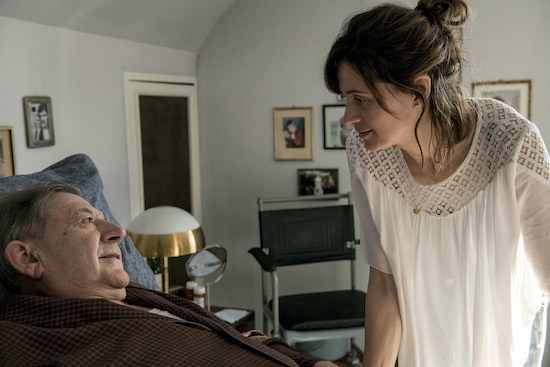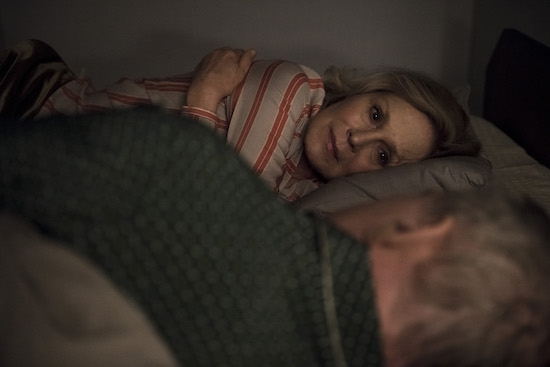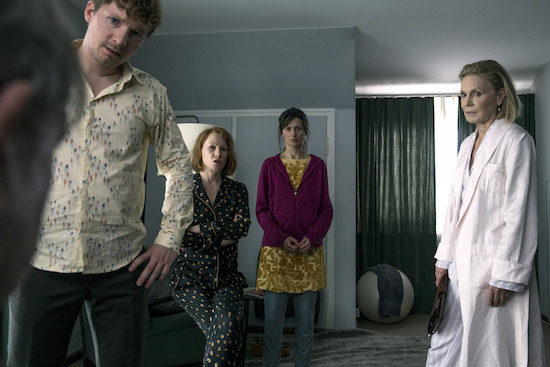My Wonderful Wanda: Swiss Family Dysfunction

Written and directed by Bettina Oberli, My Wonderful Wanda is a largely entertaining film about a wealthy Swiss family and its patriarch’s Polish caretaker. Although it starts off like a typical satire of class/culture divide, complete with victim and victimizers, the film soon becomes something else — a more complicated push and pull of family dynamics among two families. Though it may get overly complicated in the last half, My Wonderful Wanda’s twists and turns, as well as its strong performances, keep it watchable and emotionally engaging.
The film opens with Wanda (a sad-eyed Agnieszka Grochowska) arriving back in Switzerland after some time away from the prominent Wegmeister-Gloor family, whose patriarch, Josef (André Jung), is recuperating from a stroke. She is clearly a welcome presence in their spacious, lakeside house, judging from the reception she receives from son Gregi (Jacob Matschenz), matriarch Elsa (the elegant Marthe Keller), and especially Josef himself, who is delighted and relieved to see her. Though clearly an employee (who sleeps in a bare basement room), Wanda is no pushover, as we see her haggle successfully with Elsa over pay for taking on extra work in the kitchen. Still, all seems pretty typical until Josef calls out for her in the middle of the night. After he hands her cash, they proceed to have sex in a practiced, mechanical (at least for her) fashion that suggests this is far from the first time. As they go at it, she looks at—and we see—wall photos of Josef and Elsa as a beautiful young couple. It all seems rather sad, especially as we learn that Elsa is still in love with her husband and Wanda has two young children back in Poland, for whom she is earning the money. Thus the film’s plot begins to unspool.

Things become more strained when Elsa and Josef’s daughter Sophie (a spiky Birgit Minichmayr) arrives for Josef’s birthday party with her husband Manfred (Anatole Taubman). Sophie is condescending to Wanda and dismissive of her father’s dependence on “The Pole” as well as her brother’s affection for her. There’s clearly no love lost between the siblings and they argue bitterly. Things come to a head when Sophie accuses Wanda of stealing, and the latter returns to Poland.
Part II of the film begins with Wanda returning yet again to Switzerland, stopping to vomit on the way to the Wegmeister-Gloor home. This can only mean one thing in a family drama. It’s an interesting set-up for the rest of the plot, which gets even more byzantine, with family members pitted against or supporting each other in different alliances and the arrival on the scene of Wanda’s family. Amid the dysfunction and changing alignments, the film throws in more obstacles before the action settles down somewhat.

My Wonderful Wanda mirrors the situation in many families: people don’t always make sense and often needlessly complicate matters. Oberli presents an enjoyable take on the needs and desires of individuals who are not as good or evil as they might initially seem, but are basically all struggling to be happy. What starts out looking like a simple critique of haves and have-nots turns out to be way more like actual life.
My Wonderful Wanda opens in theaters and virtual cinemas at BAM in New York, at Laemmle Theaters in Los Angeles, and elsewhere on Friday, April 23.
—Marina Zogbi

